Guyana to advocate recognition of climate change as threat to global peace and security at Summit of the Future negotiations
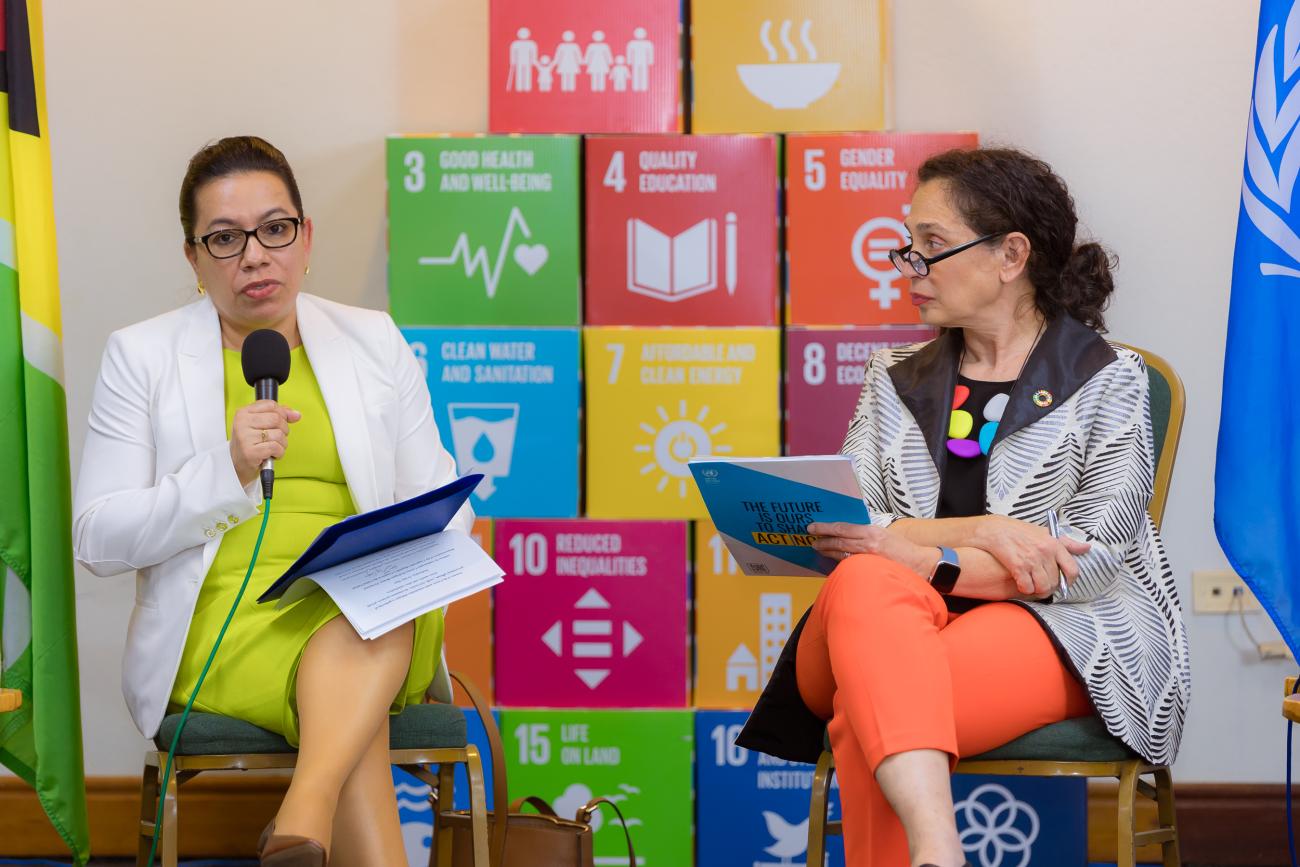
Guyana's Permanent Representative to the United Nations (UN) joined UN Guyana for a dialogue about the upcoming once-in-a-generation UN Summit.
Climate change is “the defining issue of our time,” said Ambassador Carolyn Rodrigues-Birkett, Permanent Representative of Guyana to the UN, emphasizing Guyana’s intent to advance the notion of climate change as a threat to global peace and security at September’s Summit of the Future negotiations.
The Ambassador, whose country is currently serving a two-year term on the UN Security Council [2024–2025], was participating in UN Guyana’s town hall-style ‘Summit of the Future Dialogue’ where she urged the embrace of an “expansive model” to the concept of peace and security, encompassing factors from climate change to development, human rights and gender equality.
The Summit takes place against the backdrop of increasing global challenges including deepening geopolitical divisions and conflict. "It’s all about making sure the international global multilateral system is able to weather the challenges we're facing... from artificial intelligence to climate change to human rights...," said Yeşim Oruç UN Resident Coordinator to Guyana, who was moderating the event. She highlighted the need to emerge from the Summit with a reinvigorated United Nations system that will be "fit for purpose" in today's world.
Ambassador Rodrigues-Birkett said the aim of world leaders gathering for the Summit, in September at UN Headquarters in New York, is to mend mistrust and enhance effective global cooperation. Guyana, she said, will prioritize climate security, food security and energy security in the negotiation process.
The agenda of the Summit will be spread across five thematic chapters and the outcome of the negotiations will be reflected by the outcome document called the Pact for the Future.
Chapter I: Sustainable Development and Financing for Development
Ambassador Rodrigues-Birkett said the Summit was urgently needed to “turbocharge" implementation of the Sustainable Development Goals (SDGs) — the UN's blueprint for securing the well-being and prosperity of everyone on Earth by the year 2030. The 2024 Sustainable Development Goals Report shows, however, that only a mere 17% of the targets are currently on track as the deadline draws closer.
To correct course, she said that development finance and climate finance needs to be unlocked for the developing world.
"Many countries have not been able to make progress in SDG implementation because of financing and we believe that the developed countries should shoulder their historic responsibilities and fulfill their commitments."
One example she raised was the call for the mobilization of USD $100 billion per year for developing countries by 2020, which she described as an unkept promise.
"There's no shortage of commitments really on climate but we're not seeing them implemented," she stressed.
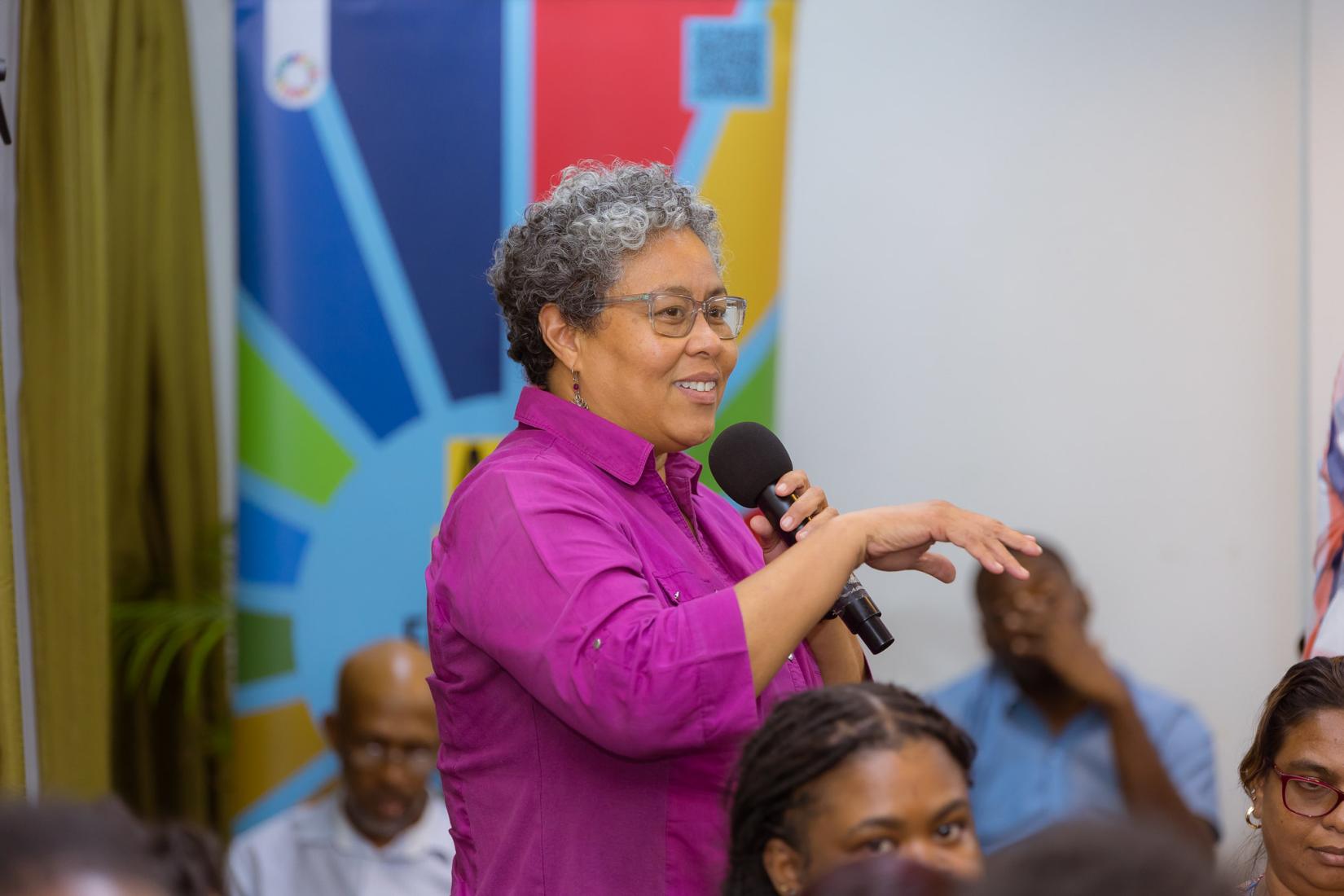
The Ambassador cited data showing that 280 million people are food insecure globally and said Guyana would be advocating for global agrifood systems transformation at the Summit.
She expressed hope that the Pact for the Future, could carry the world, "further than where we are right now," on achieving the SDGs.
Chapter II: International Peace and Security
“The Security Council is the most undemocratic organ of the United Nations,” said Ambassador Rodrigues-Birkett, urging the abolition of the veto, which allows any one of the five permanent members of the Council to block any resolution or decision by casting a negative vote.
She said that Guyana would advocate, through the Caribbean Community (CARICOM), for the creation of a rotating permanent seat on the Council for Small Island Developing States (SIDS) and also described as a historical injustice the absence of any African country with a permanent seat on the Security Council.
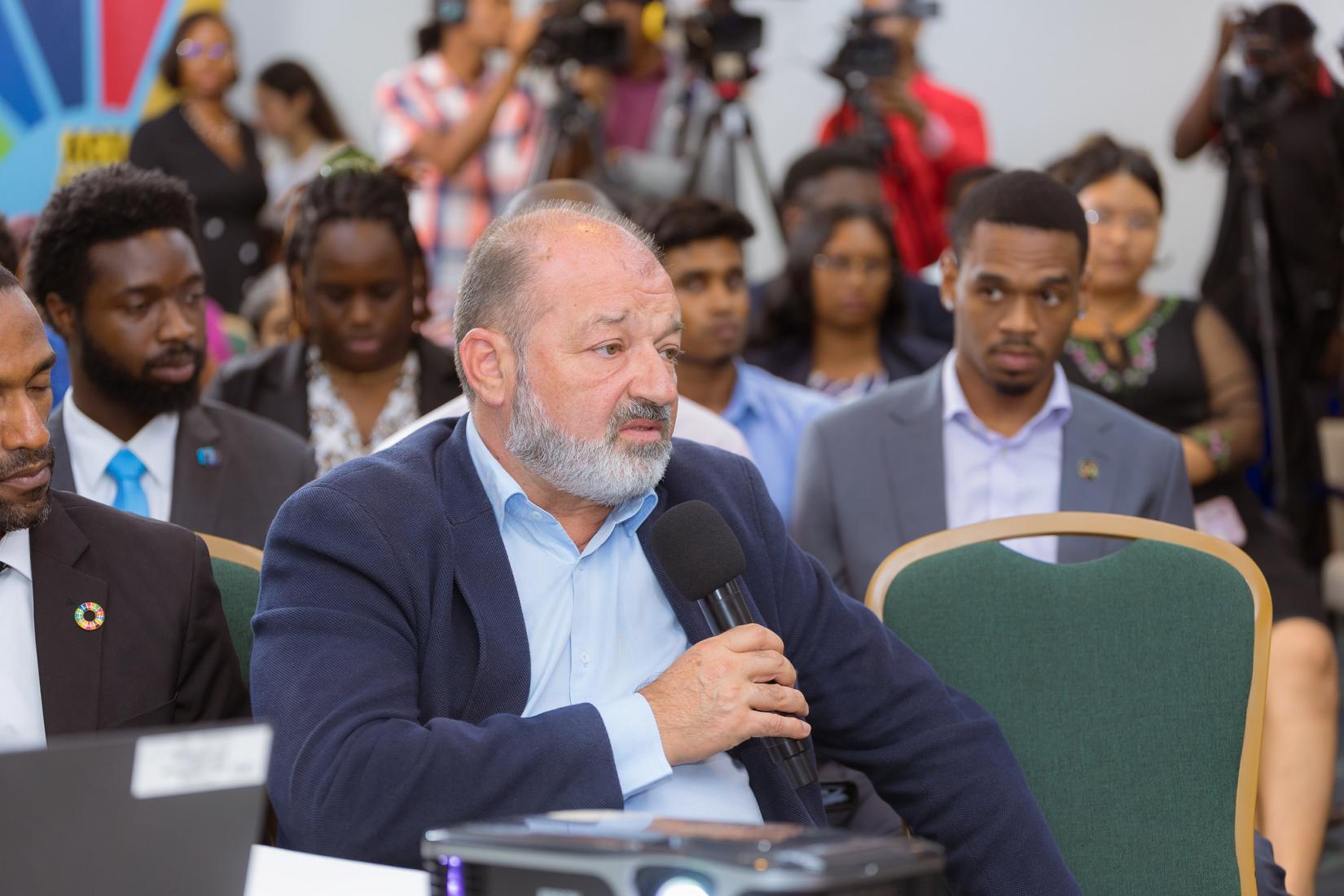
On the likelihood of these reforms being achieved at the Summit, the Ambassador cautioned about the difficulty.
“I'm not seeing the end of this road on reform very close, but we have to continue to speak on it.”
When Guyana held the Presidency of the Security Council in February, President Mohamed Irfaan Ali of Guyana chaired a high-level open debate on climate change and food insecurity during Guyana’s Presidency in February.
Reflecting on that event, the Ambassador said Guyana would continue to advance its position linking climate change and food security to global peace and security at Summit negotiations and beyond.
Chapter III. Science, technology and innovation and digital cooperation
“AI, I think it's a force for good and it's a force for bad,” said Ambassador Rodrigues-Birkett, supporting the Summit's call to regulate Artificial Intelligence.
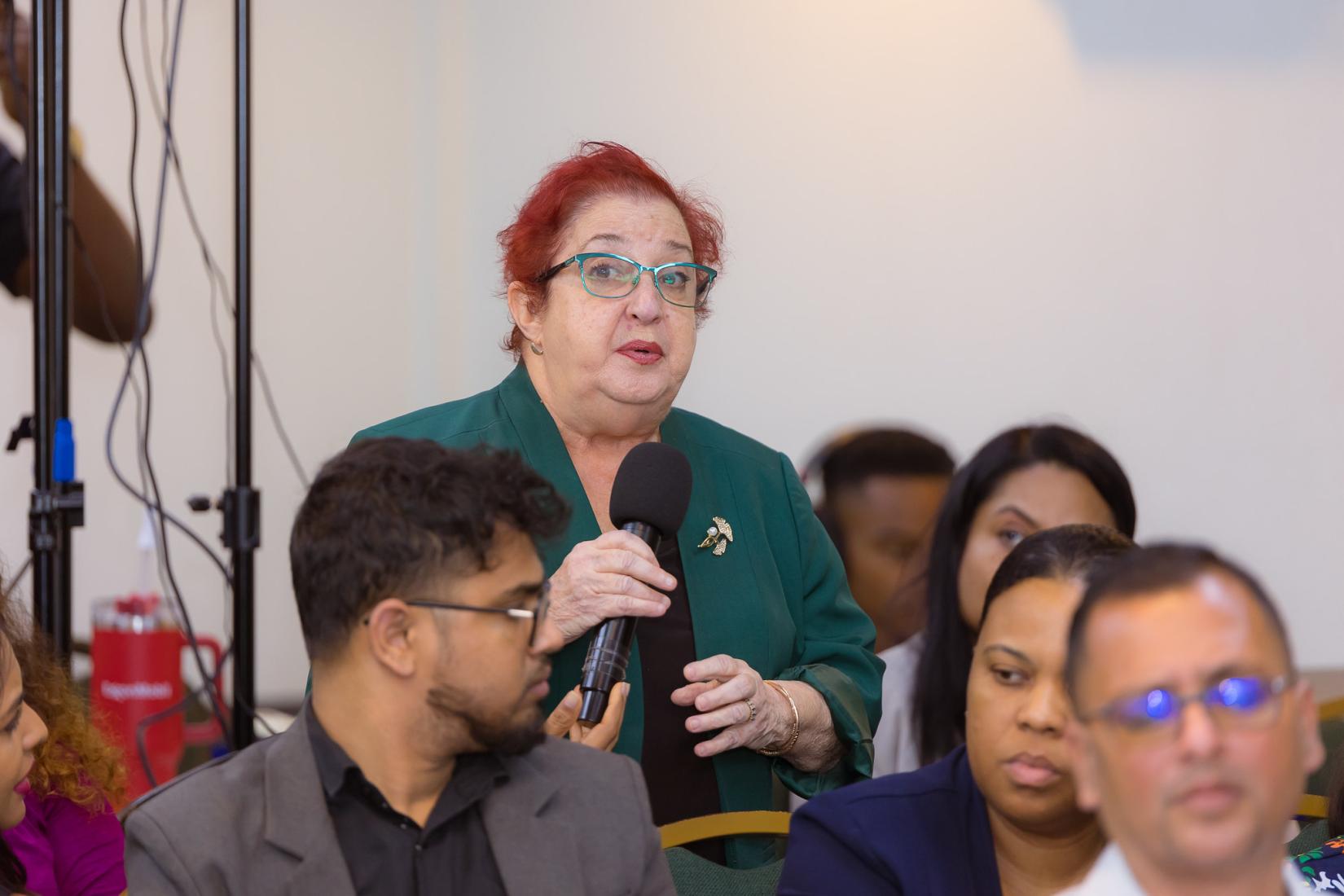
She explained that the new United Nations Youth Office is playing a central role in the Summit's engagement with youth. "We know what the issues are in terms of what young people are calling for from the discussion that we've had with youth in the process of establishing the office," she shared, having co-facilitated the intergovernmental process for the establishment of the Youth Office.
The Ambassador anticipated that the Summit's "Global Digital Compact" outcome document would be essential to bridging digital divides. The document is to serve as a framework for digital governance centered on collective principles and priorities, aiming to better manage the risks associated with digital advancements while leveraging their benefits for all.
Chapter IV: Youth and Future Generations
Ambassador Rodrigues-Birkett said an objective of the Summit was to "embed young people at the heart of decision making," by ensuring they had a voice in the meeting's discussions. A "Declaration on Future Generations" is being developed as an annex to the Pact for the Future and calls for the application of data, foresight, and science to assess the impact of today’s actions for the ten billion people yet to be born in this century.
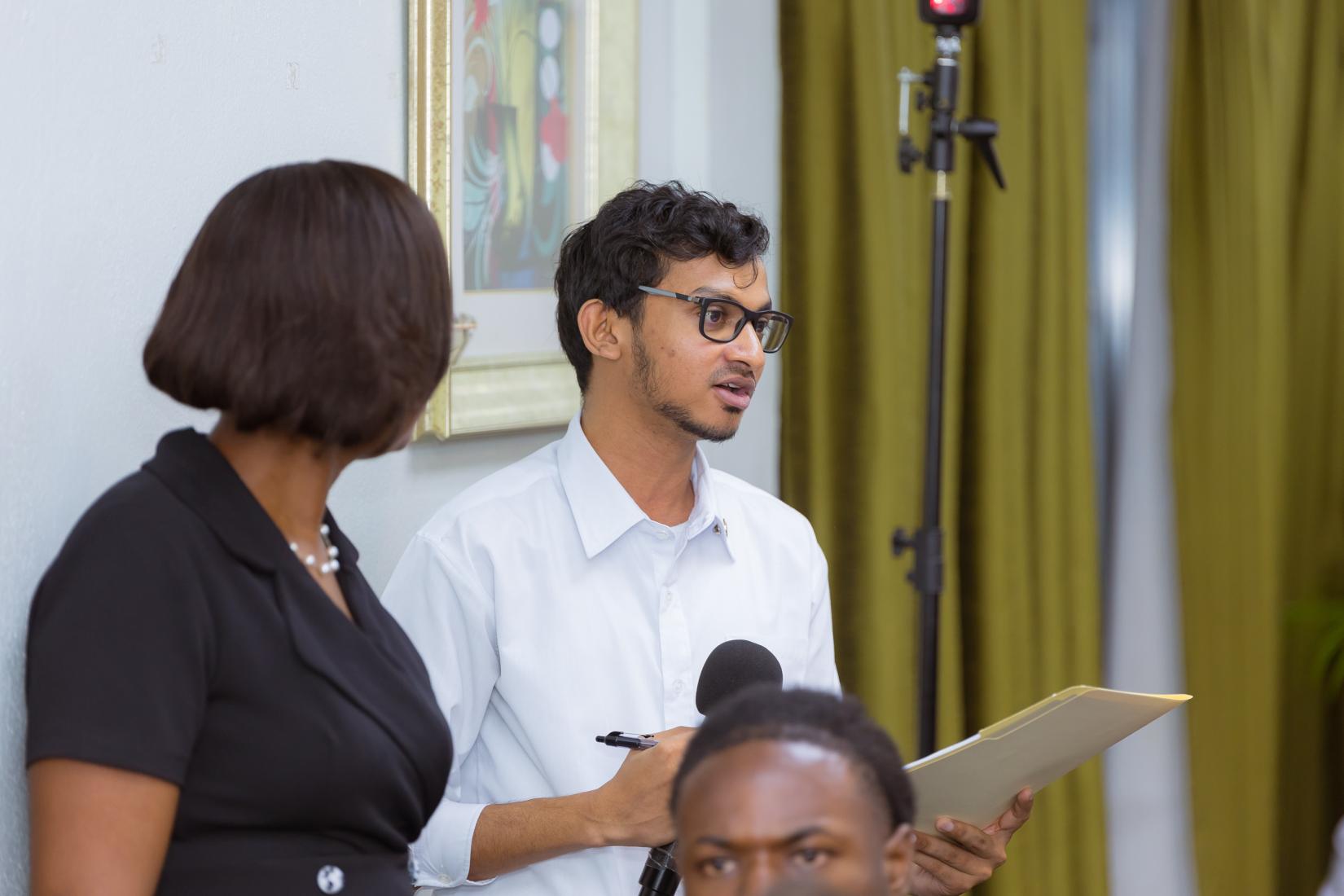
She explained that the United Nations Youth Office was playing a central role in the Summit's engagement with youth. "We know what the issues are in terms of what young people are calling for from the discussion that we've had with youth in the process of establishing the office," she said as she had co-facilitated the intergovernmental process for the establishment of the Youth Office.
Chapter V: Transforming Global Governance
Ambassador Rodrigues-Birkett said that Guyana is advocating for reform of the international financial architecture to address the development challenges faced by SIDS and other vulnerable regions.
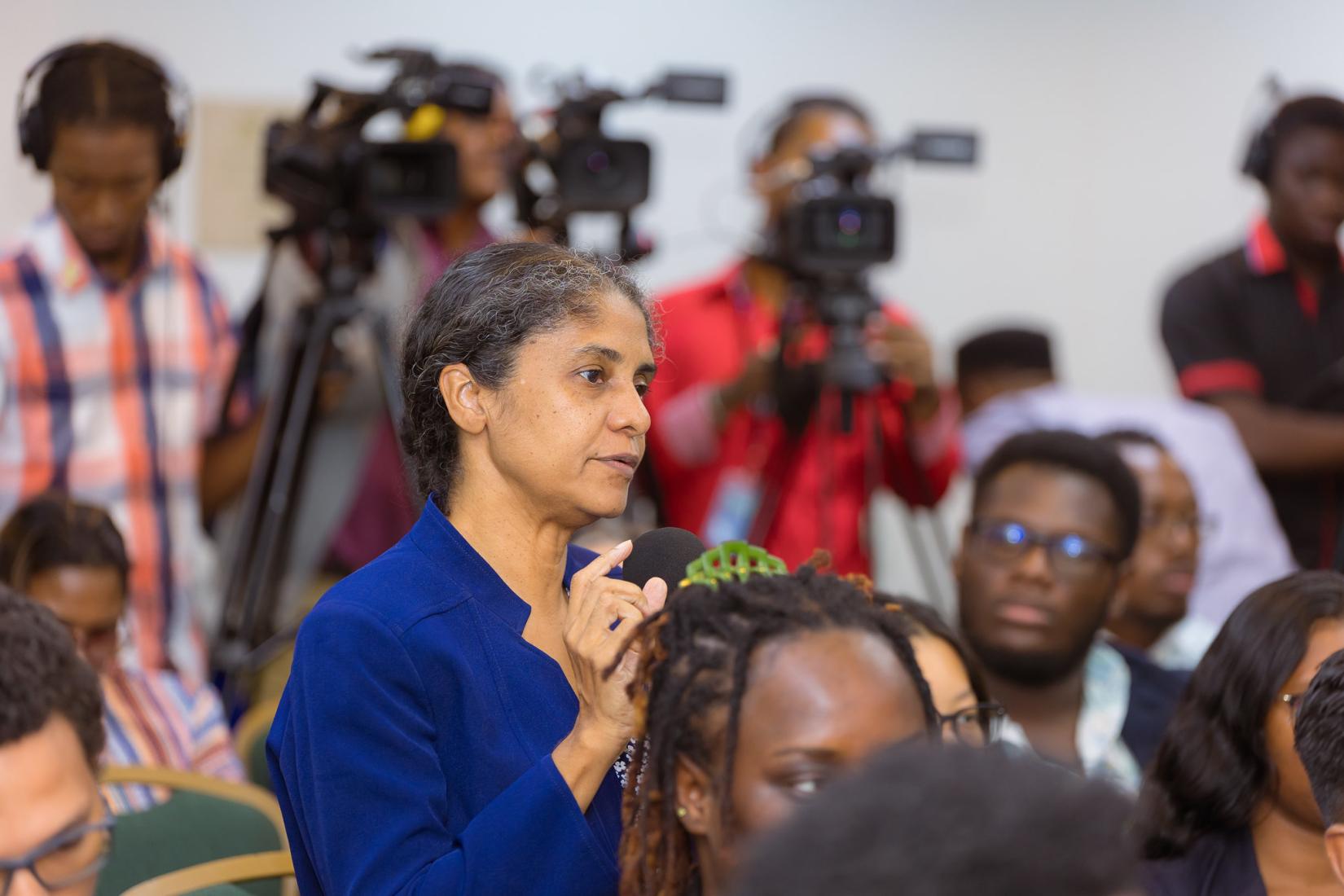
"Because you're classified as a middle-income country you have to borrow at very high interest rates and some countries that might be at your same level, in terms of GDP per capita, can borrow at a less cost than you,” she said, calling the system, “unfair.”
Nonetheless, she praised recent progress towards the adoption of the Multidimensional Vulnerability Index (MVI), a comprehensive measure of economic vulnerability, and called for international financial institutions to integrate these measures into their lending practices.
The Ambassador emphasized the need to create an emergency platform that would facilitate access to concessional finance for SIDS that are vulnerable to external shocks.
"COVID came and we also see hurricanes come and go, we see floods come and go and the UN does not have an emergency platform to deal with these."
She pointed to Hurricane Beryl's impact on Saint Vincent and the Grenadines and Grenada as the most recent example.
The multi-stakeholder Summit of the Future dialogue saw the participation of development partners, youth, civil society, women’s groups, national commissions, academia, the media, among others.
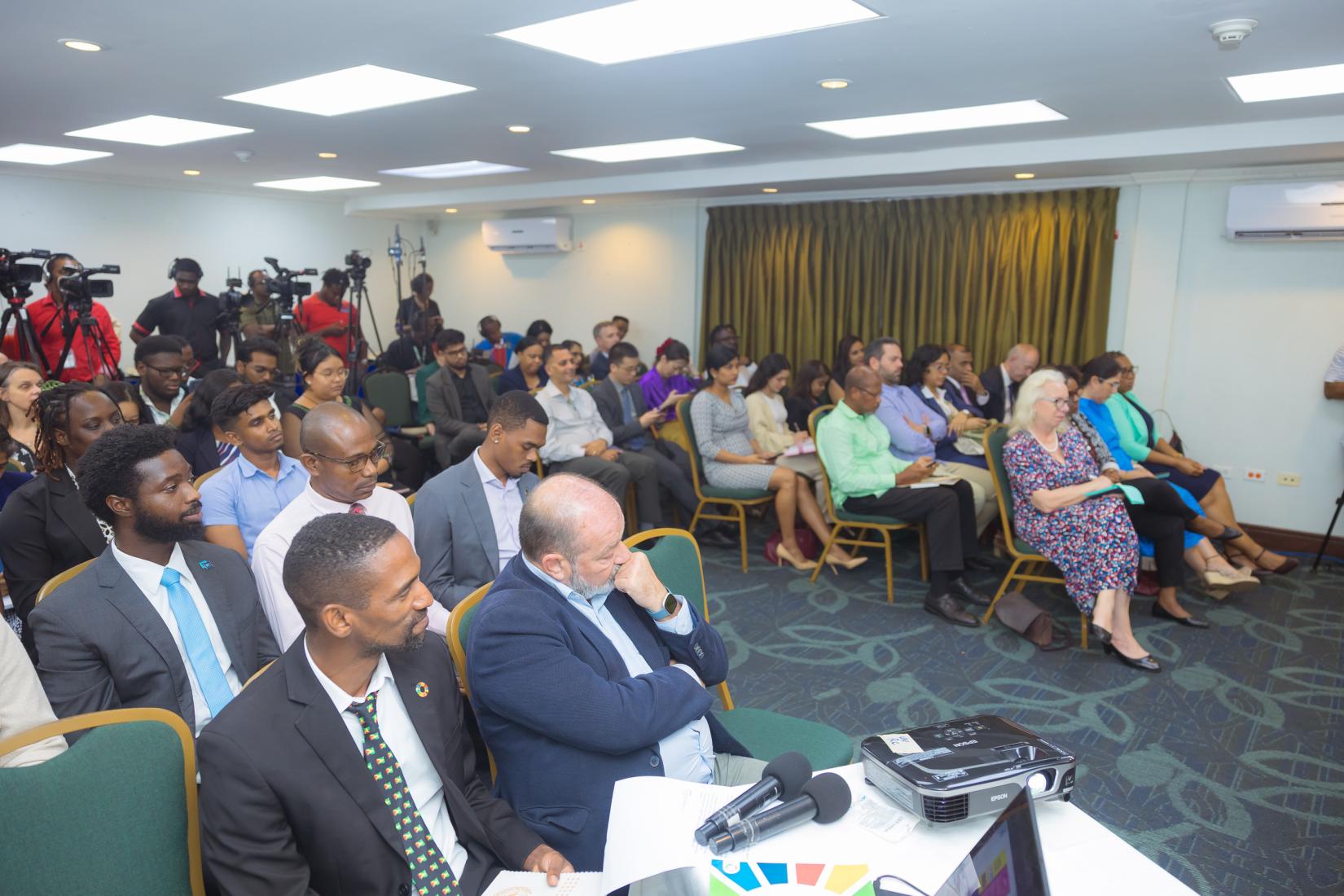
View more more photographs from this event here.
Written by


















